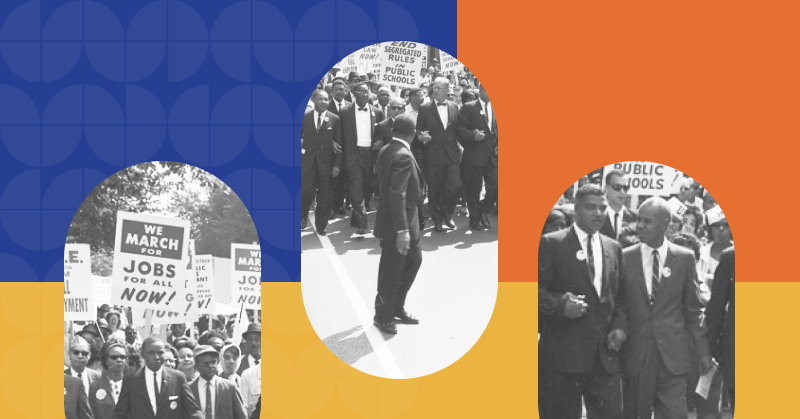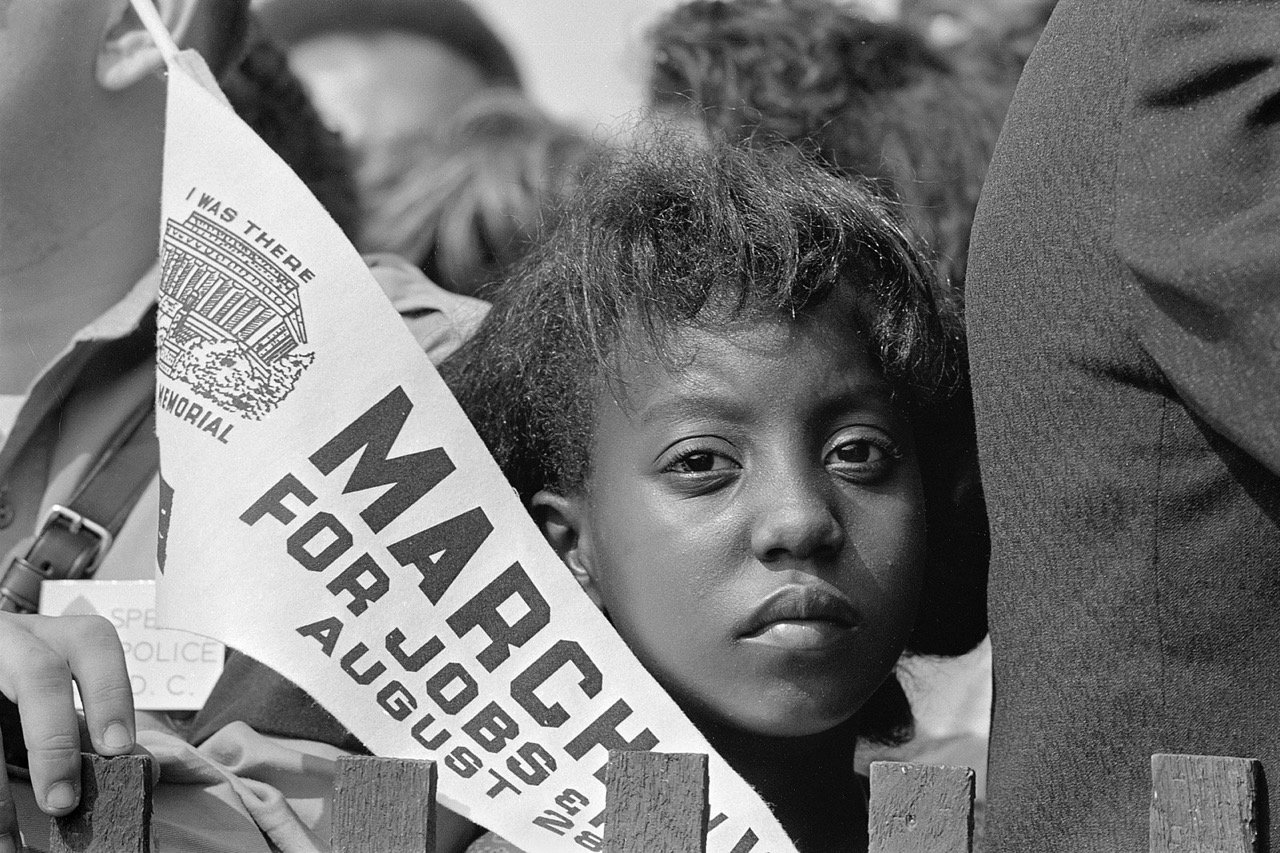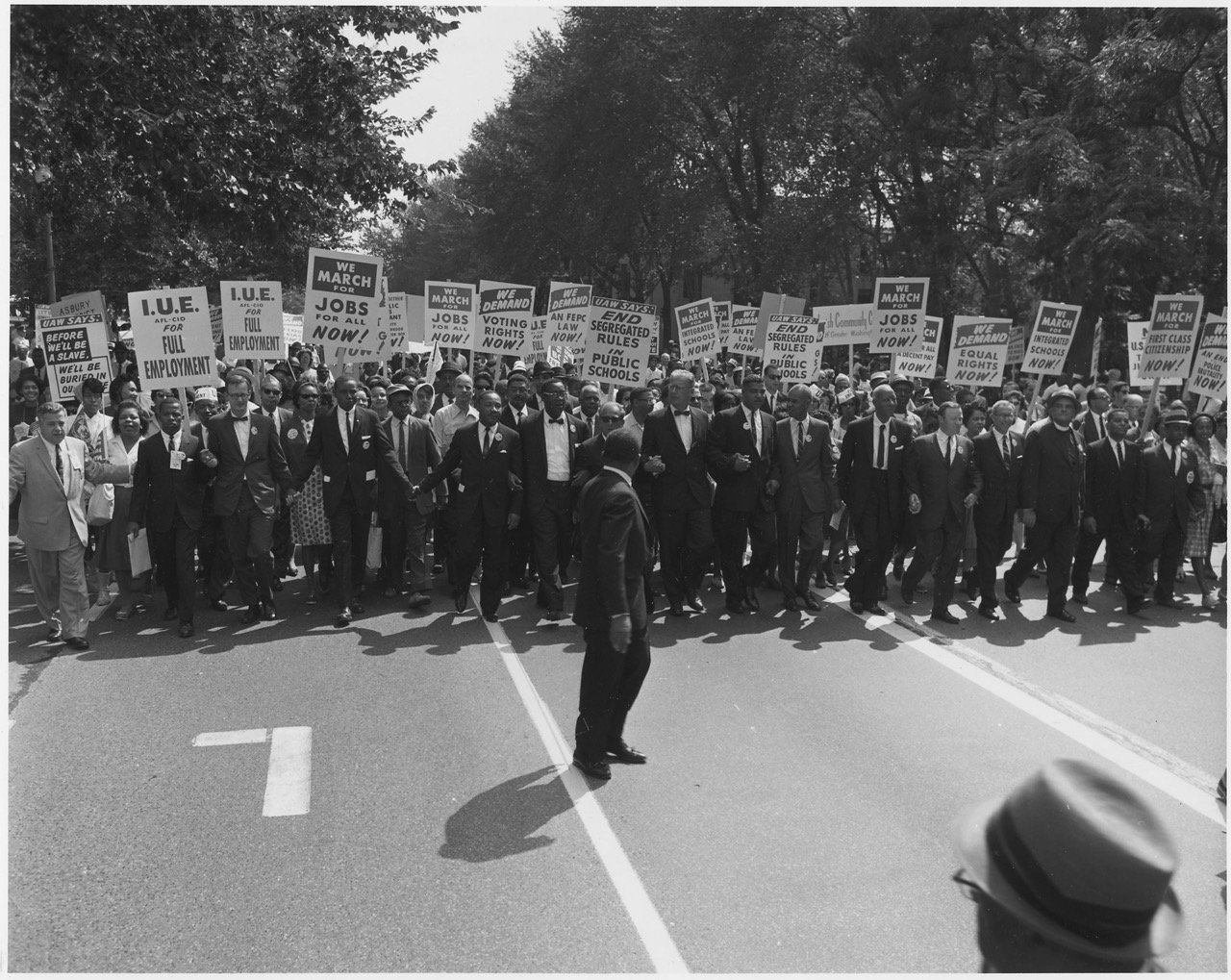Is Guaranteed Income a Stepping Stone Towards Reparations?
Civil rights and union leaders marching during the 1963 Civil Rights March on Washington, D.C. Credit: unknown
Cities around the country have started piloting guaranteed income programs aimed at addressing income inequality–an issue that disproportionately impacts Black and brown families. In this episode, we explore the policy implications of guaranteed income programs and whether they could function as a bridge to reparations. We hear from Dr. Cheryl Grills, a clinical psychologist and member of California’s Reparations Task Force, Ebony Burroughs, a recipient of a guaranteed income program in Atlanta, Yvette Carnell, president and founder of American Descendents of Slavery (ADOS) Advocacy Foundation, and Afua Atta-Mensah, Chief of Programs for Community Change.
Reported by Patrice Mosley.
Follow Afua Atta-Mensah on Twitter @AfuaAttaMensah and Yvette Carnell @BreakingBrown.





